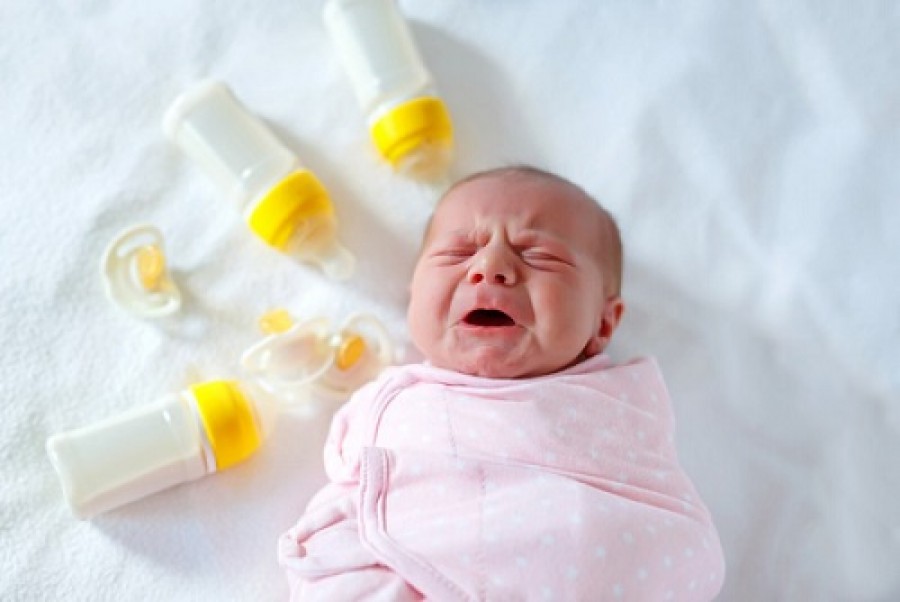Is My Baby Too Hot?
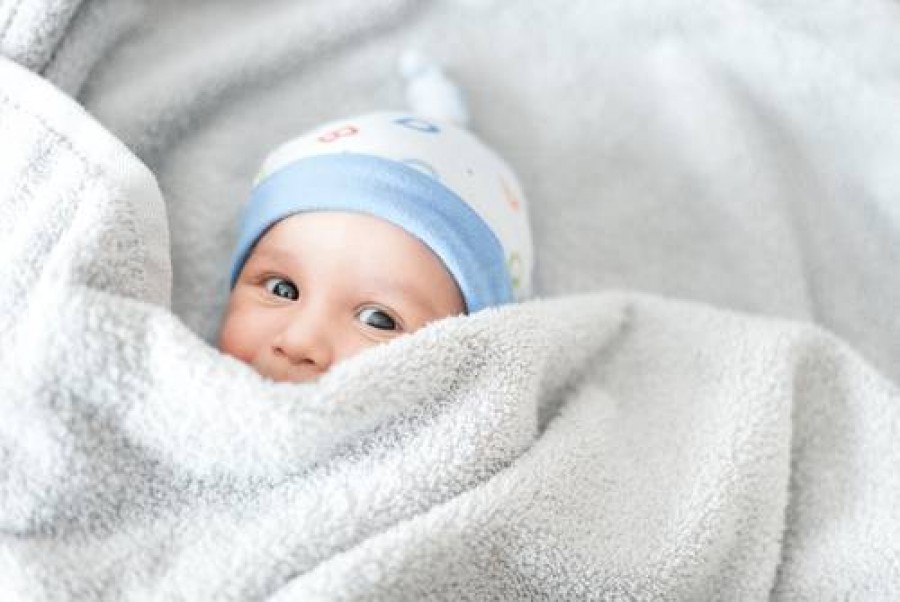
Once your baby comes into this world, you as parents are fully responsible to take proper care of your baby by all means.
It is natural for parents to think about what to do and what not to do which makes them worried about making the right decisions for their baby.
When you make up a list of things to be taken care of, protecting your baby from heat and cold would be one of them.
Since harsh weather can immediately affect your baby’s health, therefore it becomes very important to take the necessary measures to protect your child from any mishaps.
Most parents are confused whether their baby is properly covered or not.
This is because covering your baby too much might overheat your baby and not covering your baby at all might lead to fever, cold etc., especially while sleeping at night.
Parents often tend to over cover babies trying to make sure their baby is protected from the cold.
At other times, parents also tend to leave their babies without covering them properly thinking they might overheat their baby leading to a fever.
Healthcare professionals usually suggest to cover your baby according to the “feel of the surrounding temperature”.
This means if you can feel cold in the baby’s surrounding there is a high chance that your baby is feeling cold as well and if you feel hot or warm, your little one should be feeling the same.
Knowing your baby’s temperature
While your baby is sleeping it is highly recommended to measure your baby’s temperature and cover your baby accordingly.
Healthcare professionals recommend checking your baby’s temperature regularly, especially in your baby’s initial weeks since your baby will slowly start adjusting to the surrounding environment.
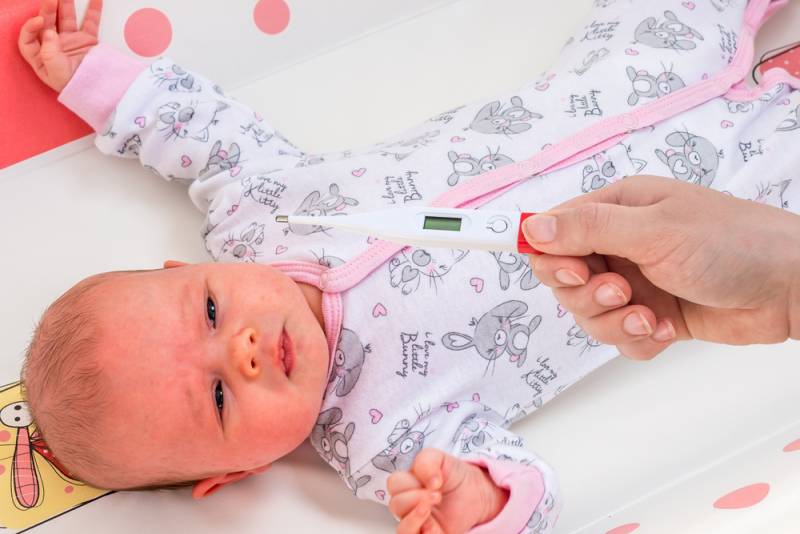
Touching your baby’s skin
Touching your baby’s skin can also give you an idea of how your baby is feeling temperature wise.
Softly touch and feel your baby’s face, arms and forehead with your hand.
If you feel your baby’s body is cold (cooler than it normally should), this means your baby needs to be covered better.
And if the baby’s body is extra warm (warmer than normal) this means your baby is feeling hot and you must remove layers off the baby.
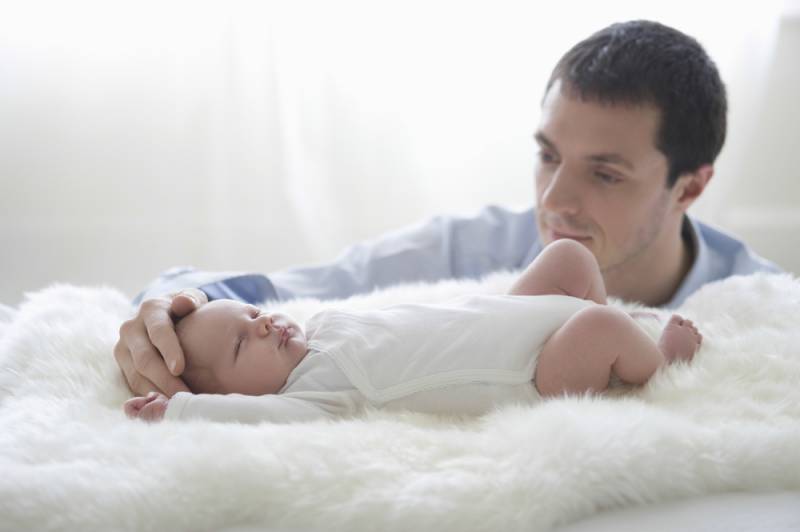
Observing your baby’s behaviour
Observing your baby’s behaviour to predict whether your baby is feeling warm or cold is also a common practice by parents.
Regularly checking your baby to see if your baby is pushing off the blanket away from his body and is waking up more often than normal, this is a possible sign that your baby is not comfortable with the covering and may be feeling too warm.
It is then a good idea to remove the blanket/covering off your baby for a some time.
On the other hand, if you notice your baby is folding his body and seems a bit too restless while sleeping, this could be a sign that your baby may be feeling cold and needs to be covered with blanket.
It is then a good idea to feel your baby’s skin by touching your baby’s head, hands, chest and arms and cover your baby accordingly.
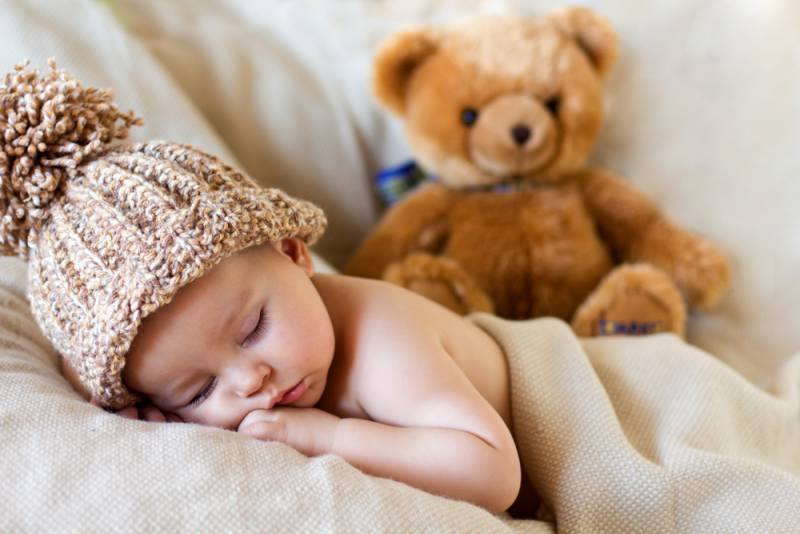
Observing your baby’s breathing
As a parent, regularly monitoring your baby, especially in your baby’s initial weeks of birth is your duty.
There are times when you baby might be breathing faster than normal.
One of the causes of your baby rapidly breathing is that your baby might be overheated.
Your baby’s body will feel warm to you, especially the baby’s chest.
Check your baby’s temperature using a digital thermometer. If you are unsure, immediately seeking medical help for your baby is recommended.
Dangers of overheating your baby
Keeping your baby warm is important but protecting your baby from overheating is extremely important as well.
Overheating your baby can lead the baby to suffer from some or all of the following:
#1 Dehydration
Overheating your baby can cause dehydration (or lack of water content) in your baby’s body.
Dehydration can lead to life threatening issues in your baby.
It is always advised to keep your baby hydrated at all times, especially is times when the baby’s surrounding environment is too hot due to blanket/quilt covering, heater overheating your baby’s room or the weather being generally too hot.
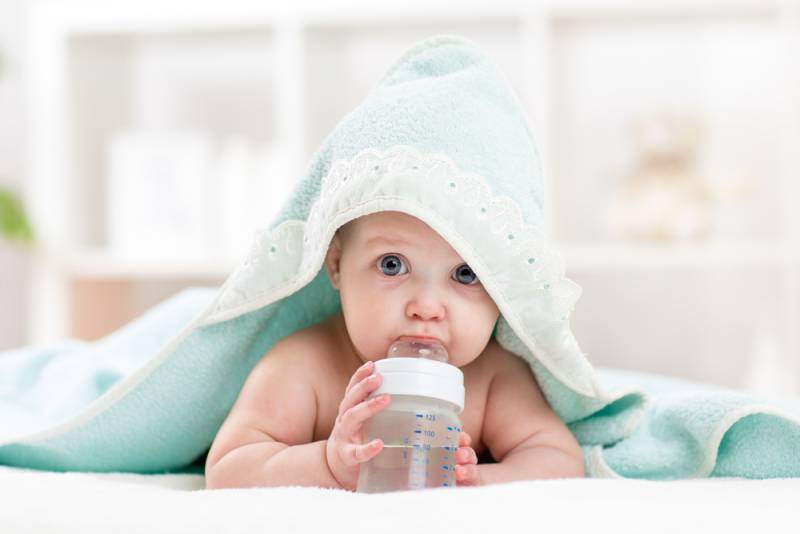
#2 Sunburn
Protecting your newborn, infants and toddlers from direct sunlight is very crucial as your baby can get sunburns easily.
In addition to sunburns, the heat from the sunlight can overheat your baby which is not ideal for your baby’s body temperature leading to fever or other health issues in the your baby.
On the other hand, sunlight is a good source of Vitamin D for your baby.
It is therefore important not to take your baby out uncovered under the sun and if you do, make sure that you don’t keep your baby under the sun for too long.
#3 Heatstroke
Heatstroke is also caused by harsh weather and it can be fatal, especially in newborns and infants, if not treated timely.
Heatstroke can cause headaches and nausea in your baby.
Babies also get cramps and can have abdominal pains.
Your baby’s skin may become pale and they start sweating excessively.
Another sign your baby may be facing a heatstroke is that your baby may feel difficulty while breathing.
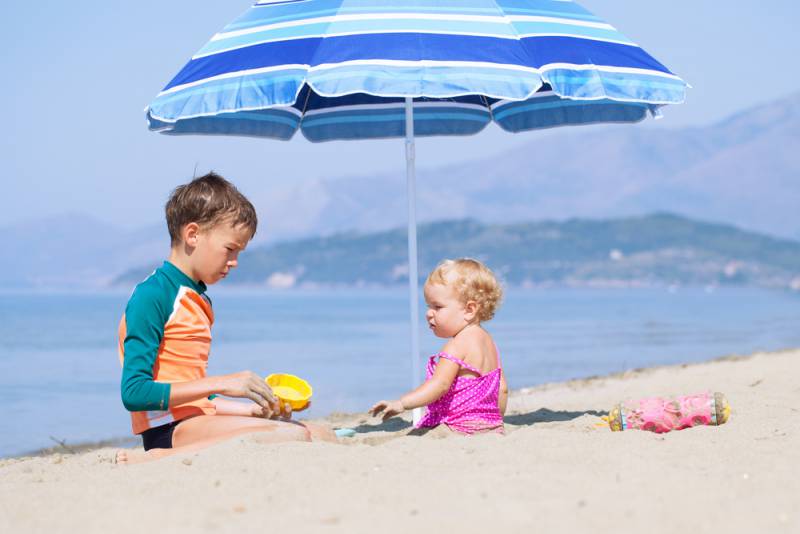
#4 Heat Rashes
Due to overheating your baby’s skin become over dry and start itchy and red.
Your baby becomes restless and very irritable once they get heat rashes.
Keeping skin cool and dry will help protect your baby from getting heat rashes.
#5 SIDS
SIDS or Sudden Infant Death Syndrome is a common of cause of infants all over the world.
Each year, a number of newborns and infants die while sleeping in their cribs due to overheating.
Parents are suggested to keep an eye on their baby while they are sleeping and see if they are not comfortable with over-layers.
Keep babies lightly clothed during summer and keep them properly clothed in winters.
It is suggested by many health practitioners that having a cold environment for babies is much more safer than hot environment.
Some helpful tips for the mother
· Keep yourself updated with daily weather and temperature of where you live.
· Try to avoid covering your baby’s head unless necessary, since covering your baby’s head for long periods of time can make your baby’s body very hot.
· Layering in winters is a much better option compared to putting on thick winter clothes to baby. Doing so, you can easily remove the layers if your baby is feeling hot.
· Giving your baby a separate space to sleep is much better for the baby compared to making your baby share a bed with you. Sharing bed with the baby increases the risks of SIDS in babies.
· If you are unable to judge the baby’s temperature and cannot decide about layering the baby then you must consult your doctor about it.


